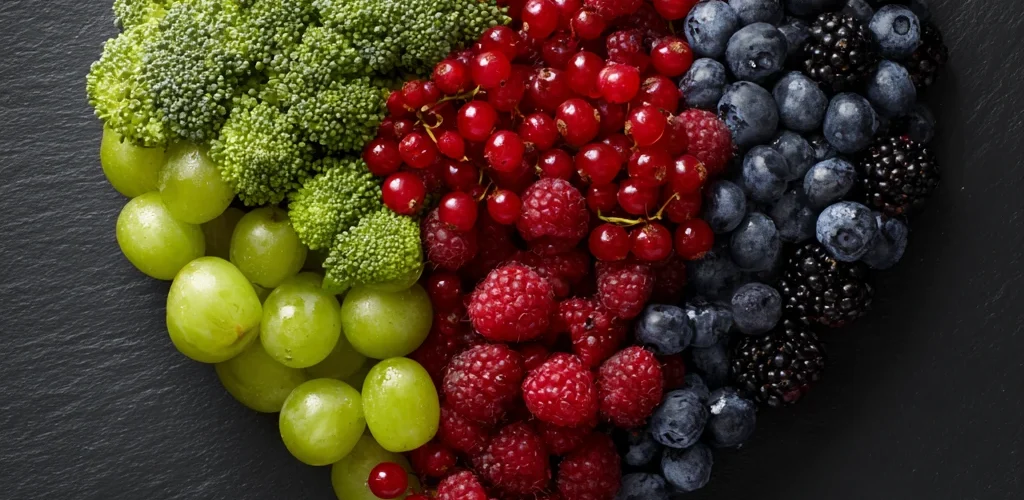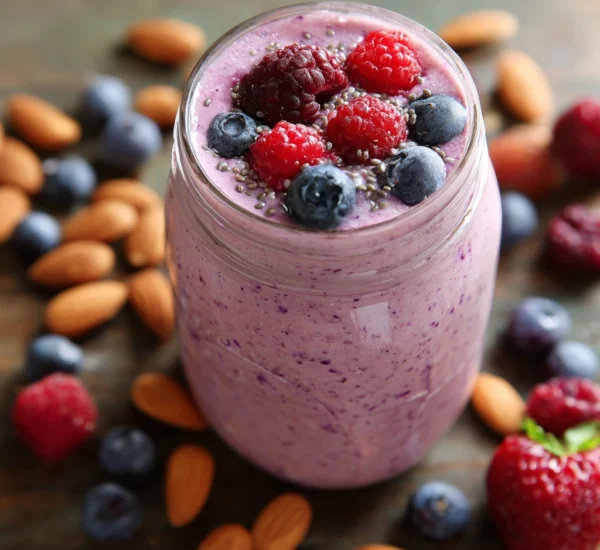Heart-Healthy Foods for Every Season
Maintaining a heart-healthy diet is crucial for overall well-being, and incorporating seasonal foods can make it both enjoyable and sustainable. Eating seasonally ensures you’re consuming fresh, nutrient-rich produce at its peak flavor and nutritional value. This guide explores heart-healthy food choices tailored for each season, empowering you to make informed dietary decisions year-round.
Spring into Heart Health: Fresh Starts and Vibrant Veggies
Spring signifies renewal and growth, and your diet should reflect this. Focus on light, fresh ingredients to revitalize your body after the heavier foods of winter.
Leafy Greens Abound
Spring is the perfect time to embrace leafy greens like spinach, kale, and arugula. These are packed with vitamins, minerals, and antioxidants. They’re low in calories and high in fiber, aiding in cholesterol management and promoting healthy blood pressure. Incorporate them into salads, smoothies, or sauté them as a side dish.
Berries for a Boost
Strawberries, blueberries, and raspberries begin to ripen in the spring, offering a delicious and heart-protective boost. These berries are rich in anthocyanins, potent antioxidants that help reduce inflammation and improve blood vessel function. Enjoy them as a snack, in yogurt, or as a topping for oatmeal.
Asparagus: A Springtime Staple
Asparagus is a spring vegetable brimming with nutrients. It’s a good source of folate, which is essential for heart health, as well as fiber and vitamins C and K. Grill, roast, or steam asparagus for a simple and healthy side dish.
Other spring produce to include
Don’t forget about artichokes, new potatoes and peas. Artichokes offer great fiber and antioxidants. Spring potatoes are full of nutrients. Peas offer a great amount of vitamins and minerals.
Summer Sunshine: Savoring Seasonal Delights
Summer offers a bounty of fruits and vegetables that are not only delicious but also contribute to a healthy heart. Stay hydrated and indulge in the flavors of the season.
Tomatoes: A Lycopene Powerhouse
Tomatoes are at their peak in summer, providing a rich source of lycopene, an antioxidant linked to a reduced risk of heart disease. Enjoy them in salads, sandwiches, sauces, or simply sliced with a drizzle of olive oil.
Watermelon: Hydration and Heart Health
Watermelon is not only refreshing but also contains citrulline, an amino acid that may help improve blood flow and lower blood pressure. It’s also a good source of vitamins A and C.
Stone Fruits for Sweetness
Peaches, plums, and nectarines are abundant in summer and offer a sweet and heart-healthy treat. They’re packed with vitamins, minerals, and fiber, contributing to overall well-being.
Other summer produce to include
Consider adding corn to your summer table, which offers fiber and magnesium. Bell peppers and zucchini are also great summer options, which can be a wonderful addition to any diet.
Autumn Harvest: Embracing Warmth and Rich Flavors
Autumn brings a change in weather and a shift in available produce. Focus on heart-healthy options that are comforting and nourishing.
Apples: A Fall Favorite
Apples are a classic fall fruit, rich in fiber and antioxidants. They can help lower cholesterol levels and promote healthy digestion. Enjoy them as a snack, in pies, or as part of a savory dish.
Pumpkins and Squash: Nutritional Powerhouses
Pumpkins and other winter squashes, like butternut and acorn squash, are excellent sources of vitamins A and C, as well as fiber and potassium. These nutrients support heart health and overall immunity. Roast them, use them in soups, or incorporate them into baked goods.
Root Vegetables: Earthy Goodness
Beets, carrots, and sweet potatoes are root vegetables that thrive in the fall. They’re packed with vitamins, minerals, and fiber. Beets, in particular, are known for their potential to lower blood pressure.
Other autumn produce to include
Brussels sprouts are a fantastic fall vegetable. Include cranberries in your recipes to add a lot of extra antioxidants.
Winter Warmth: Comforting and Heart-Smart Choices
Winter can be challenging for maintaining a healthy diet, but there are plenty of seasonal options to keep your heart happy.
Citrus Fruits for a Vitamin C Boost
Oranges, grapefruits, and lemons are at their peak in winter, providing a crucial dose of vitamin C to support your immune system and protect against oxidative damage. They also contain flavonoids that may help lower blood pressure and improve cholesterol levels.
Winter Greens: Hardy and Healthy
Kale, collard greens, and other hardy greens continue to thrive in winter. They’re packed with vitamins, minerals, and fiber, offering a nutrient-rich boost during the colder months.
Pomegranates: Antioxidant Rich
Pomegranates are winter fruits brimming with antioxidants, which can help protect against heart disease. Enjoy the seeds as a snack, in salads, or as a topping for yogurt.
Other winter produce to include
Turnips and parsnips are often available through winter. Don’t forget garlic and onions that are available all year round.
Beyond Seasonal Produce: Year-Round Heart-Healthy Staples
While seasonal produce offers unique benefits, certain foods are consistently beneficial for heart health and should be included in your diet year-round.
Fatty Fish: Omega-3 Power
Salmon, tuna, and mackerel are rich in omega-3 fatty acids, which have been shown to lower triglycerides, reduce blood pressure, and decrease the risk of heart disease. Aim to include fatty fish in your diet at least twice a week.
Nuts and Seeds: Healthy Fats and Fiber
Almonds, walnuts, chia seeds, and flaxseeds are excellent sources of healthy fats, fiber, and antioxidants. They can help lower cholesterol levels and improve heart function. Enjoy them as a snack, in yogurt, or as a topping for salads.
Legumes: Protein and Fiber
Beans, lentils, and peas are rich in protein, fiber, and essential nutrients. They can help lower cholesterol levels, regulate blood sugar, and promote overall heart health. Incorporate them into soups, stews, salads, or as a side dish.
Olive Oil: A Mediterranean Staple
Extra virgin olive oil is a key component of the Mediterranean diet and is rich in monounsaturated fats and antioxidants. It can help lower cholesterol levels and reduce inflammation. Use it for cooking, salad dressings, or as a dipping oil.
Frequently Asked Questions (FAQ)
Q: What are the worst foods for heart health?
A: Foods high in saturated and trans fats, sodium, and added sugars are detrimental to heart health. Examples include processed meats, fried foods, sugary drinks, and baked goods.
Q: How many servings of fruits and vegetables should I eat daily for heart health?
A: Aim for at least five servings of fruits and vegetables daily. This ensures you’re getting a wide range of vitamins, minerals, and antioxidants.
Q: Can coffee affect heart health?
A: For most people, moderate coffee consumption is not harmful and may even offer some heart health benefits. However, excessive caffeine intake can increase heart rate and blood pressure in some individuals.
Q: Is red wine good for heart health?
A: Moderate red wine consumption has been linked to some heart health benefits, primarily due to its antioxidant content. However, excessive alcohol consumption can be harmful, so moderation is key (one drink per day for women, two for men).
Q: Are eggs bad for cholesterol?
A: Dietary cholesterol has less impact on blood cholesterol levels than saturated and trans fats. For most people, eggs can be part of a heart-healthy diet, but moderation is advised.
Q: Is dark chocolate good for heart health?
A: Dark chocolate with a high cocoa content (70% or higher) contains flavonoids that may benefit heart health. Enjoy it in moderation as part of a balanced diet.



